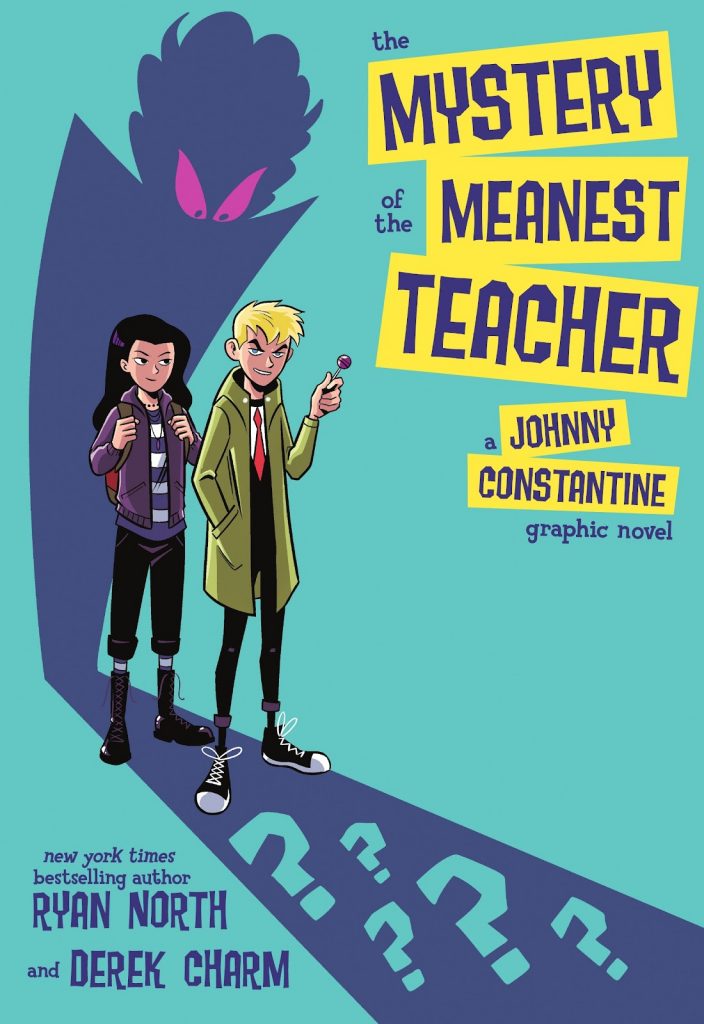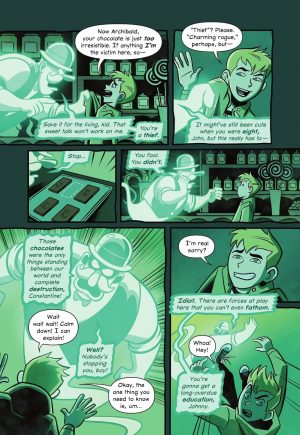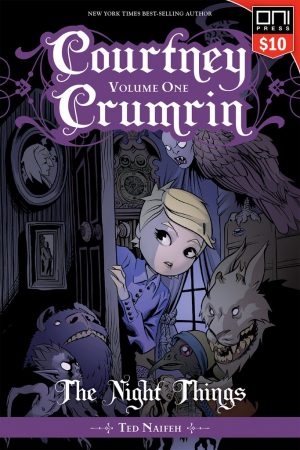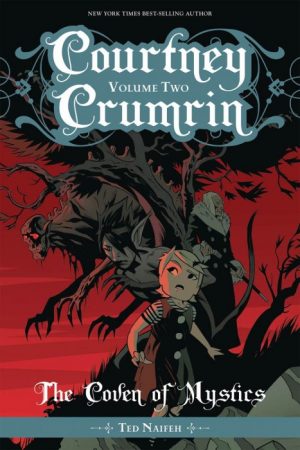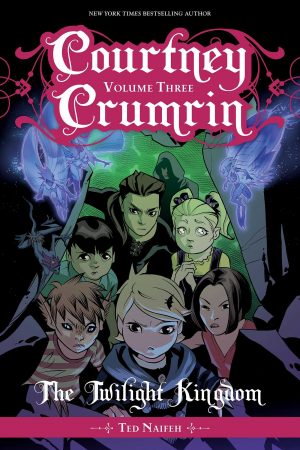Review by Frank Plowright
With his hard-drinking, chain-smoking, deceitful and morally void self-serving character, John Constantine is possibly the least likely of DC’s properties to be given an outing as part of their young adult line, yet here we have The Mystery of the Meanest Teacher. How much of his core personality will survive?
Surprisingly, it’s enough to make The Mystery of the Meanest Teacher a sassy dilution of Constantine viable for the intended audience. In this incarnation, as in many stories for younger readers, Johnny Constantine’s parents remain ignorant of his occult doings, His method is still to act without consideration and deal with the consequences, and he’s irritating enough to earn the enmity of ghosts and annoy the demons with whom he seeks sanctuary. The solution is to persuade his parents to send him to an American boarding school, and after a while we come to the meanest teacher.
Mindful of the audience, Derek Charm chooses to draw comedy demons, and while Johnny himself is often scowling, he’s also capable of smiling. Key to Ryan North’s story is that Johnny learns the value of friendship, and Charm brings out a different, and frankly disarming visual side to the trenchcoated magician. He tells the story clearly, focussing on people, and draws a great version of another DC character who makes a surprise appearance and sticks around until the end.
There’s a long literary tradition of kids with magic at school, and there can’t be an English-speaking child unaware of Harry Potter, so North’s on safe ground with a plot about witchcraft and demons. He starts with a sort of familiar cocky Johnny, but then delivers some uncertainty because his magic doesn’t work as well in the USA. The spells he can use, though, might be small scale, but they’re fascinating, and new friend and sounding board Anna is more resourceful that she first seems.
Laced with good humour and surprises until the last page, The Mystery of the Meanest Teacher delivers its message with subtlety and charm, carefully avoiding the explicit nastiness normally accompanying Constantine. As such, it’s a success all round.
